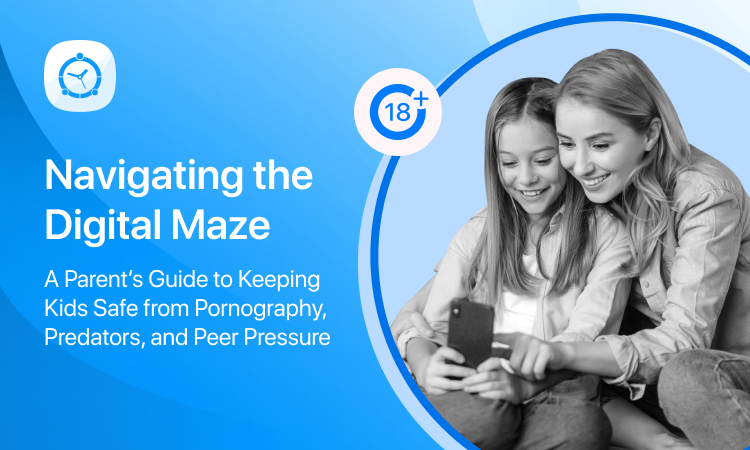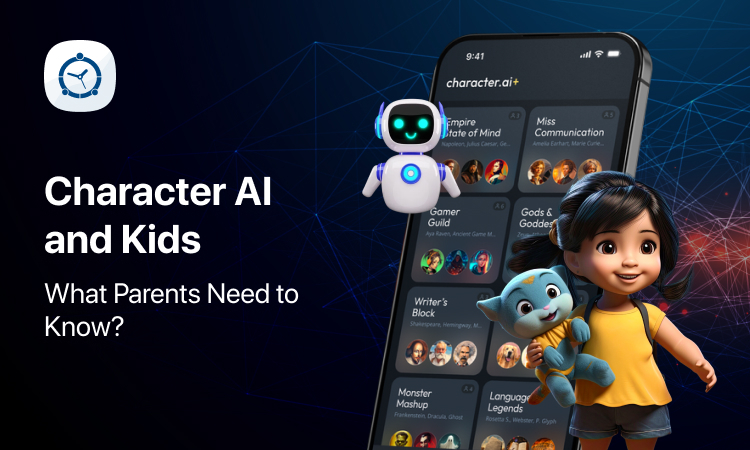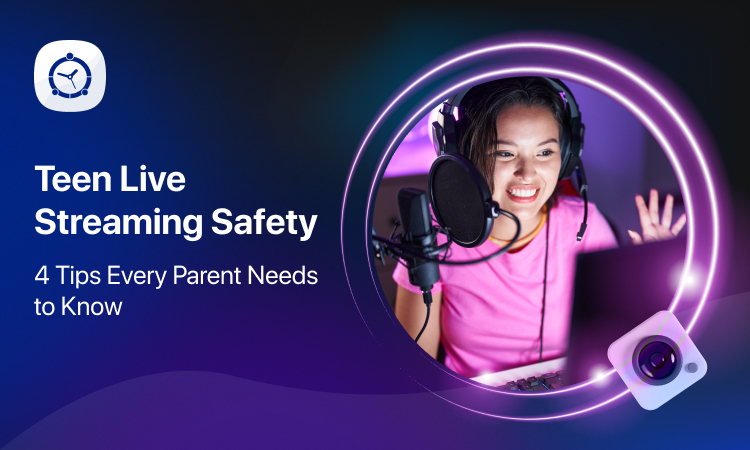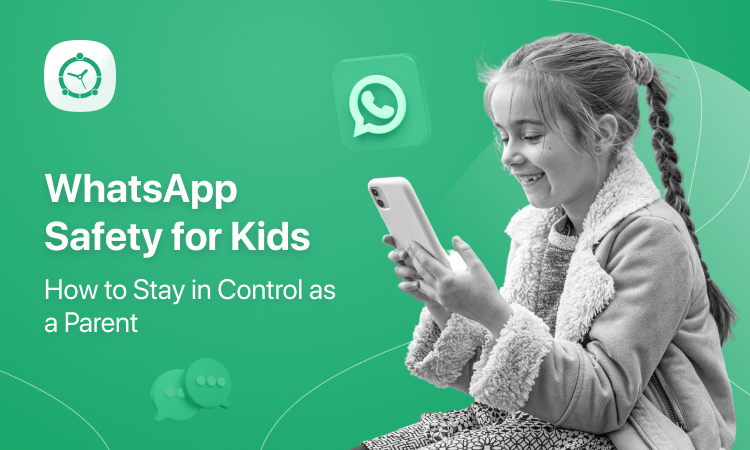
Childhood obesity is a rising concern in the United States where it affects about 13.7 million children and adolescents. No wonder it is considered the most prevalent nutritional disorder in the US. A sedentary lifestyle and the prevalence of technology which has rendered kids spending an average of 23 hours every week on their smartphones and other gadgets has made childhood obesity, along with obesity related health disorders a serious issue. This is an alarming situation, for childhood is a time of growth, learning and development; staying active is important for kids! Though technology continues to evolve, many parents still remain unaware of useful parenting tools such as internet filter, screen time limit, app blocker etc. FamilyTime’s goal has always been to help parents keep up with the ever changing world of the internet and provide a parental control app that makes smart parenting easy and effortless.
Their iPhones, iPads are also mini TVs
There was a time when parents allowed kids to watch TV for a limited time and everything seemed well and good. Today, however, even kids as young as 4 years have their own iPhones, Kindle devices, Samsung Tabs, iPads etc. which they may be glued to for hours every day sitting in the same spot– such inactivity is not healthy! Today children spend almost 8 hours, on average, in front of the screen in one form or the other when these 8 hours can very well be spent outdoors playing sports or engaging in some other healthy physical activity that is important for their developing bodies and brains. According to a study, children who spent more than 5 hours in front of screens daily had a 43% greater chance of developing obesity. With the portability offered by these hand-held devices, parents find it more and more difficult to regulate their children’s screen time, for many kids continue to use their smartphones and tablets for hours past bedtime while the parents believe their kids are getting sound sleep.
A positive link between Metabolic Syndrome and Screen Time
First, a quick pathology lesson. Metabolic Syndrome, also known as Syndrome X, is a group of metabolic disorders linked with greater chances of developing heart problems, diabetes, cancer and stroke which are all serious health conditions!
A study conducted on adolescents aged 12-19 found out that there was a convincing correlation between metabolic syndrome and screen time on which the rate of physical activity had no effect. This is alarming since many parents assume that if their kids are engaging in some sort of daily physical activity, they’re good to use their smartphones for as long as they please. We hate to break it to you, but no, longer screen time is harmful no matter how active your kids are. Experts suggest that the daily allowed screen limit should be no more than 2 hours, hence kids should spend their free time engaging in healthy outdoor activities. Socializing with their friends, reading, playing a musical instrument, dog walking are just a few fun ways to spend their time. Excessive screen time has shown to increase blood glucose and fat levels, and blood pressure. These indications require serious measures because no compromises can be made when your kid’s health and well-being are on the line.
Screen Time, Insomnia and Obesity
A lot of kids go to bed with their smartphones or tablets by their side. Texting, playing video games, watching YouTube videos and going through their social media feed keeps the brain alert when it should be relaxing instead. This visual and psychological stimulation provided by the bright screen causes sleeplessness and stress responses which contribute to obesity. Sleep deprivation may also cause type 2 diabetes in which less insulin is produced and blood glucose increases to unhealthy levels. The harms of excessive screen time in kids and teens can not be overlooked.
Many teens would spend their nights texting for hours or watching videos after lights out and the blue light emitted from the phone screen negatively affects sleep. The sleep-related hormone melatonin works in different ways to prepare a person for sound sleep and make them wake up feeling well-rested in the morning. Due to exposure to blue light from the phone screen, the release of melatonin is reduced causing alertness and insomnia. It goes without saying that not getting sound sleep, will make your child feel tired and cranky in the morning. This daily tiredness and sluggishness by being sleep-deprived stifles your kid’s innate urge to be active, promoting obesity. Furthermore, research suggests that a sleep-deprived brain prefers eating more high-calorie junk food, keeping your kids from making healthy food choices and increasing their chances of getting obese and obesity related health problems.
Screen Time Limits may be the answer
Being on their smartphones and tablets means that kids and teens spend hours sitting in the same spot. By now, it’s well understood how harmful such inactivity can be for their developing minds and bodies. But don’t worry, thanks to the development of parental control apps offering the Limit Screen Time feature, you can make sure your kids aren’t always glued to their devices. Using Limit Screen Time, you have the option of shutting their device access at night, during homework time or whenever you want them to get off their devices and engage in healthy outdoor or indoor activities. The FamilyTime Parental Control app also offers a fast and efficient Limit Screen Time feature that may be exactly what you’re looking for. Disconnect your kids from the internet world and help them take part in healthy experiences. Educate yourself and your kids on the dangers of excessive screen time and work with them to find the perfect balance because the key is moderation!
Happy Parenting 🙂







